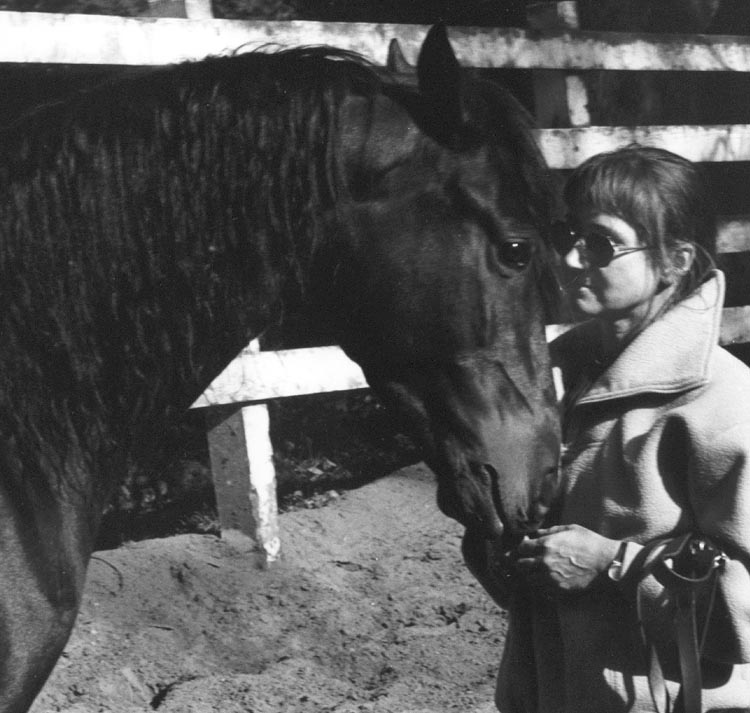Well I made it about half way through that video. To me she was upset because the horse wouldn’t back. To me the horse did not understand the cue for going back. She is being rewarded for going forward and then suddenly not being rewarded for going forward and just leaves so she doesn’t get the idea of what the lunge whip used in front means. When loose the lunge whip in front means change direction.
To have no control over the horse whatsoever and do things like walk underneath, stick arm in mouth, hold ears until the horse is upset, just shows how much of a problem horse that horse is not. To have no control and be kissing on rump, ribs, shoulder, wherever I have NEVER seen anyone do.
To not feed a horse, OMG, the mind boggles. To do this enough for the horse to lose weight. I am sorry this is beyond the realm of normalcy and is not a person who should own animals or have children in her care. The unawareness is so extreme.
For a horse you cannot hold was Sim when next door moved their foals to a new paddock. How dare they! His babies had been taken. HORROR. This behaviour would go on for 3 days. I could not hold him. He would canter for 3 days and not graze. If hubby could hold him to tack him. I could lunge and ride by keeping my attention on me. He was a bit better once let go but still 3 days and each year he was getting worse and worse. It was not just the foals being moved but also if their horses changed paddocks.
I saw John Chatterton and he said hold loose when he goes to go pull and release.
This is done with a normal halter with circles not squares. The lead rope goes through the circle, behind the jaw and clicks to the circle on the other side.
To start with it didn’t seem to do anything but at least he wasn’t getting away from me. Slowly he got a bit better and I was able to lead him. When I let him go he grazed for a bit. This seemed to help not just physically but also mentally.
He got better and better and nowadays we hardly notice if they move a horse next door and we no longer have to use the pull and release. He just has a bit more energy when being ridden.
As to your question about praise and punishment. Praise is Good boy or Girl, on the lunge I use words like Yes, Beautiful, Lovely, That is what I want. I stroke only, I don’t pat. Strokes can be long and hard or soft and short. I also turn the dressage whip upside down and use that when in a free walk. While riding the reward is to prove the inside rein. To walk for a rest and if they did something super hop off and finish. I do not use food rewards, but I can use a carrot for reward if needed.
Punishment is to say uhuh. Sometimes a no. Or a really? A slap usually on the neck or shoulder if they move and put back and praise I use as training, never anger.
To the person who said that their horses are standing on their feet. A mare never steps on her foal. They know. Unless you put your foot under their hoof as it is coming down. That gives you something to think about. Change your handling. Having a horse stand on your foot is not normal. Stand further away.
To me all horses want to please you. They want to do good. If they understand what you want it makes them happy to do it and they will work their heart out for you. It is only a horse who doesn’t understand that doesn’t do what you want.


 |16x16]
|16x16]